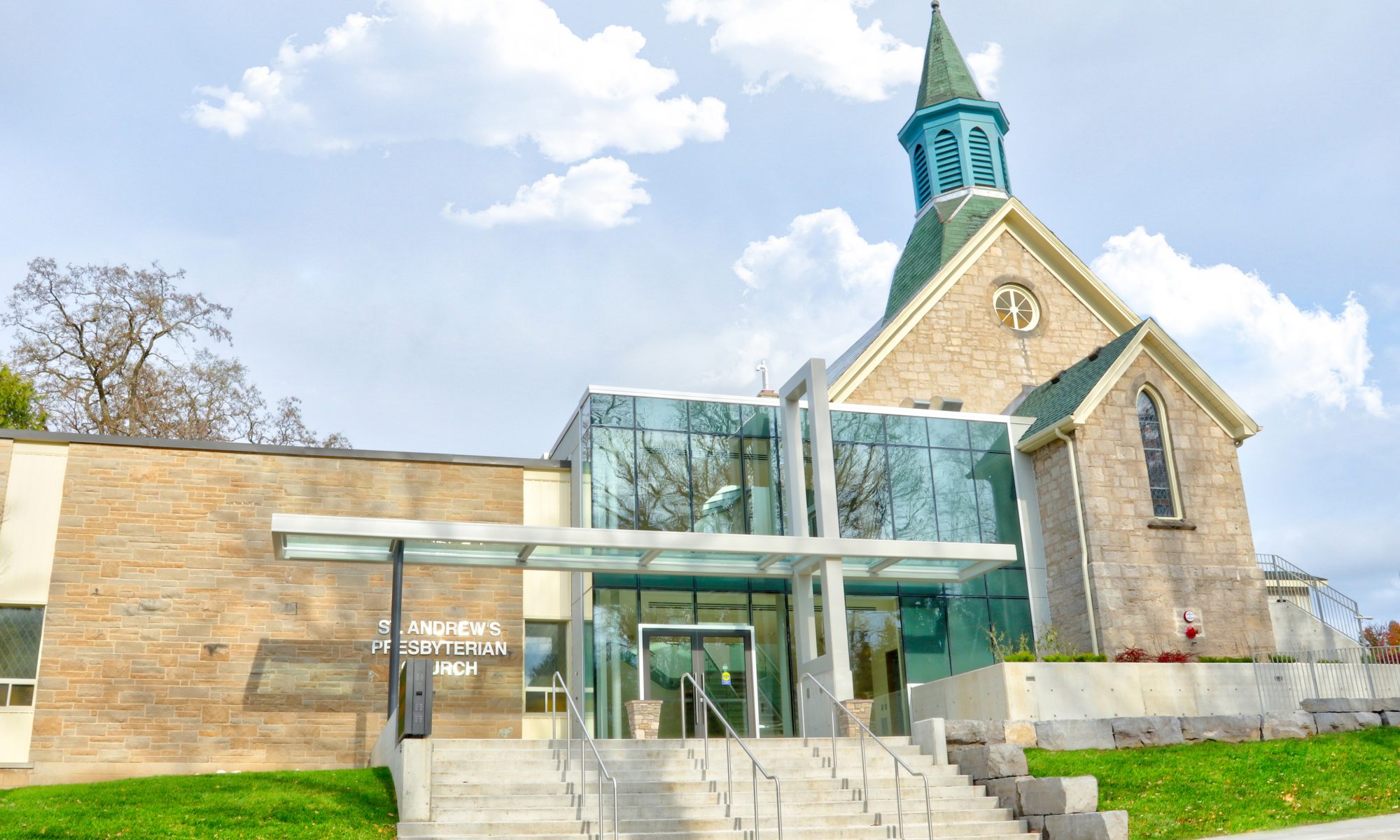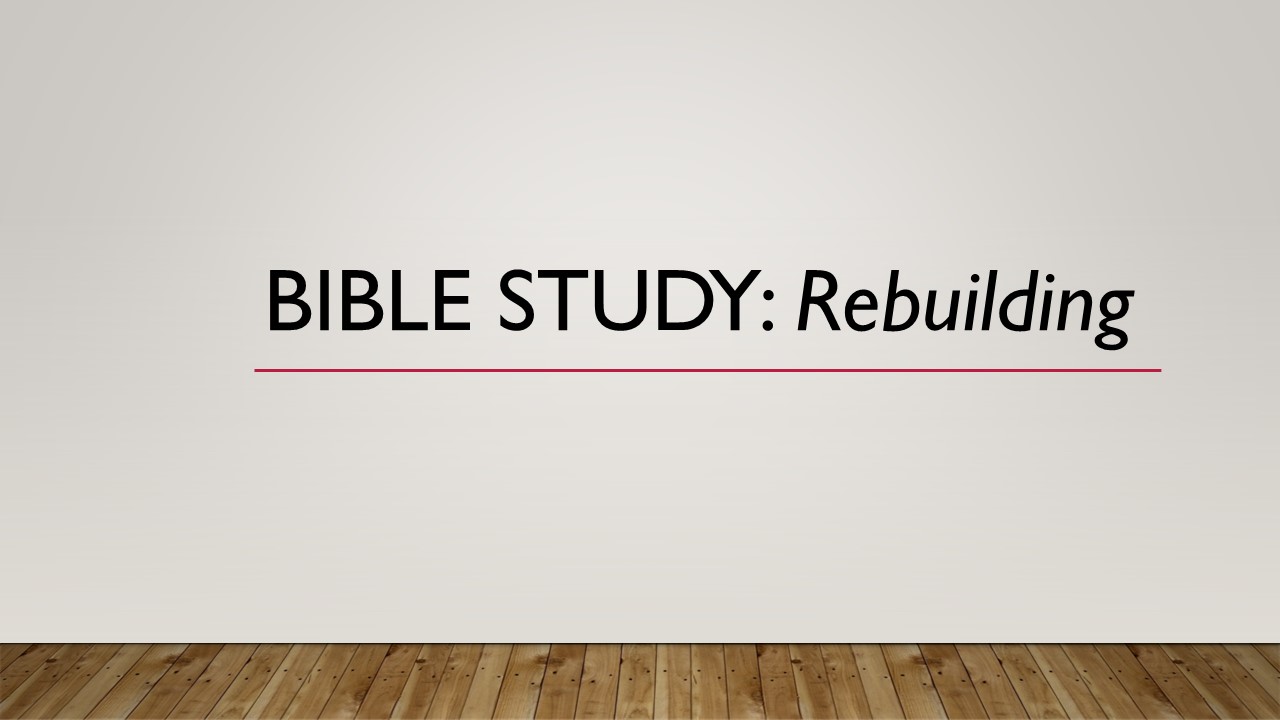Study Video
This Bible Study goes along with Part 5 of the sermon series we’re working through at St. Andrew’s called “Rebuilding.” If you haven’t listened to these message from March 13, you can find them HERE.
Nehemiah Chapters 7&8
The focus of Part 5 of the series is mainly on chapter 8, but we’re going to take some time in this session to look at chapter 7 as well. In these chapters the focus of Nehemiah moves from rebuilding the wall of Jerusalem to rebuilding the people and community of the city and larger Jewish community in Judah.
Chapter 7
Read Nehemiah. This may be a challenge due to fact that most of this chapter is a long list of names, places and numbers. If you’re struggling with the pronunciations, you can find audio Bible selections Nehemiah 7 here: https://www.biblegateway.com/audio/mclean/niv/Neh.7
Questions:
-
- Look at verse 4. What do think is more difficult: a physical or technical task like rebuilding a city (or renovating a building), or the work of rebuilding a community or family?
- Look at verses 6 and 7, then turn back to Ezra chapters 1 and 2 (remember that Ezra and Nehemiah are really one book). It’s been 90 years, two or three generations, since the 50,000 odd people listed have come back from exile in Babylon. How do you think Nehemiah and the people of his time felt knowing that it had taken so long to rebuild Jerusalem to this point? What might this suggest about the amount of work ahead? Is the work ever really finished?
- As you look at the list that makes up most of this chapter and remember the importance of names in the Bible. By most measures, this group didn’t accomplish much, yet they are remembered and named not just once, but twice. Why do you think that is? What might be more important than measurable accomplishments?
Chapter 8 – Part 1
Read Nehemiah 7:73-8:12. There are again a number of names in this section, and you can listen to it here: https://www.biblegateway.com/audio/mclean/niv/Neh.8
Questions:
-
- Think about how much time the people of Judah and Jerusalem spent listening to and learning from God’s Word in this chapter, and the change this represented in their lives
- Have you had times in your life where you were disconnected from the Bible, or found it hard to make reading the Bible regularly a priority? Are you in one of those times now?
- If you’ve reconnected to the Bible, what caused that change? If you haven’t, what might give you the kind of spiritual hunger we find in Nehemiah 8? What might help you turn that hunger into action?
- There are lots of great Bible reading programs and apps around today. The Bible in One Year is program produced by creators of the Alpha Course. The Bible Project has a new app that takes another approach to leading us through the full story of the Bible. Journaling (ie. keeping track of what you’ve read) and getting together with other Christians are other simple ways of keeping connected to the Bible.
Chapter 8 – Part 2
Read Nehemiah 8:13-18, then read Exodus 23:14-19 and Deuteronomy 16:13-17 to learn about the festival of tabernacles (booths or temporary shelters). You can also watch this short video here that talks a bit about how modern Jews celebrate this feast (whose original Hebrew name is Sukkot) https://youtu.be/7okN0nGxAM4
Questions:
-
- In the first part of chapter 8, we saw the people want to mourn when they heard what was taught by God’s law, and the teachers calling on them to rejoice in spite of all the ways they had fallen short of God’s teaching. In this second part we see them do this spontaneously when they hear about the Festival of Booths/Tabernacles.
- When you encounter teaching from the Bible that makes you realize that you’re living out of step with God’s teaching, does this cause you to mourn or get stuck in guilt, or can it be a source of celebration or motivation to do something different?
- Is remembering what God has done in the past something that you do often (whether in your own life, or in the big story of God’s people)? Does this act of remembering give you hope for the present and the future?
- As Christians we have our own festivals or celebrations of what God has done – Christmas, Easter, Pentecost etc. Do these times of remembering help you live in hope for today? Do we enter into these stories and memories in a significant and embodied way (as the Jewish people do in this story of living in temporary shelters for a week), or do we rush through them? How might we celebrate them differently after two years of COVID disrupting what we have done before.

